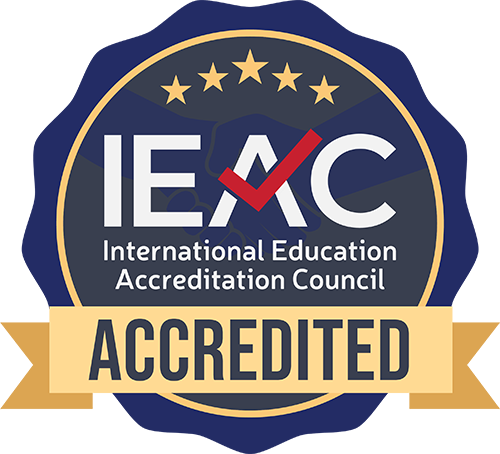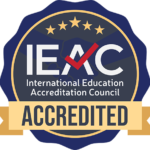Introduction
- Want a career in management?
- Are you an entrepreneur with brilliant ideas that can make you money?
- Want an alternative route to university?
The Warnborough College Bachelor of Business Administration (BBA) is an essential step for those seeking a successful career in business today. No longer can you depend on good luck and chance moves to make your mark. Business today is about knowledge, skill and strategy.
Our Bachelor of Business Administration is forward-thinking. It is flexible enough to allow for the rapid changes in technology, yet grounded in time-honoured skills which are required for the successful running of a business. Moreover, you can do the whole programme in stages, earning a certification each step of the way.
Key Info
Duration:
3 -4 Years ^
Credits:
240 ECTS credits
Fees:
€50* per ECTS credit
Start:
Monthly
Prerequisites:
High school certificate in the same or related discipline

- Students who want to leave the traditional pathway to university (from as early as 16 years of age).
- Those already working in business but needing more knowledge to climb the career ladder.
- Those looking to start their own business.
- Those looking to take over their family business.
You should have a high school diploma or equivalent, and be able to demonstrate English language proficiency (minimum IELTS score of 6.5).
This degree is split into three parts. Upon successful completion of each part, you will receive an award from the ATHE corresponding to that level. This gives you flexibility to plan your studies and be recognised at each level with a Diploma. Moreover, it will not stop you from continuing with your career while you study – you can even take a break after each level to focus on your career, should you wish to do so.

Equivalent to First Year of University. Assessment is assignment-based, only.
Developing Personal Skills
Develop a range of personal skills vital to the world of business. Concentrating on communication, leadership and decision making techniques.
Effective Communication
Communication is the key to effective operations and working effectively with others. Throughout this module, learners will grasp a range of communication techniques used for a variety of commercial purposes.
The Business Environment
Explore issues outside of the business that may affect the business and its operations. Looking into economics, international dimensions, nature and competition.
The Marketing Mix
Exploring and using the marketing mix as part of the business planning process.
Strategic HRM
This module looks at employees and people as a business’ most valuable asset. Recruit the best, reward the best and retain the best.
Managing Ethically
Explore the various theories and models of management and their different contexts.
Culture and the Organisation
What is meant by culture? Why is it important? How does it differ between organisations?
Customers and Customer Service
This module looks at customers as the fulcrum of any business.
Fundamentals of Accounting
On completion of this module, learners will understand accounts and how they can be used to give insight into the health of the organisation.
Financial Management and Control
In this module, learners will compare and contrast some examples of good and bad financial decision making and the impact on the business.
Equivalent to Second Year of University. Assessment is assignment-based, only.
The Entrepreneurial Manager
What is an Entrepreneur? Examine the skills and qualities of entrepreneurship.
Organisation Structures
Why are organisations structured in the way they are? What determines the optimum structure and how does it differ between organisations? In this module, learners will look at the numerous models and theories that make up organisational structure.
Practical Accounting Analysis
Learners will complete exercises in accounts throughout this module to understand what they are telling us and the actions that analysis can precipitate.
Business Planning and Goal Setting
What is the business trying to achieve? What will it do? How will it do it? This module focuses on the creation of clear goals and clear plans to achieve a clear objective.
Politics and Business
Impact of politics on business and how it may help or hinder business. This module will educate learners on economic impact, exports and government support.
Business Law
Explore the statutory responsibilities of managers as learners look into the legalities of business and business executives.
Managing in Today’s World
Business in the modern world. This module focuses on governance and equality as a means to do right in business.
Performance Management
Understanding how your people and your business can continually improve together, learners will review reward structures, CPD, training and development to ensure high performance in business.
Marketing and Sales Planning
Learners will analyse how markets, customers, competitors and products can come together in a cohesive plan.
Quantitative Skills
On successful completion of this module, learners will have knowledge of numeric exercises and will understand their use within the context of the business.
Equivalent to the Final Year of University. Assessment is assignment-based, only.
Information Systems and E-Commerce
Information technology has revolutionised the way business is done. This course looks at how technology is used, the benefits it can bring, the pitfalls to look out for, and how to leverage this for competitive advantage, particularly in the field of e-commerce.
Business Economics
A general study of price determination; production and cost; supply and demand; market structures; factor markets and wage theories; nature and role of profit; competition; monopoly. Financial institutions; externalities and market failures, money, interest and the price-level; monetarism; aggregate supply and demand, inflation, unemployment and economic growth.
Customer Relationship Management
This module looks at the principles and best practices for managing customer relationships that result in relationship annuities. Students learn how to quantify customer orientation and how to develop relationship-driven customer management systems based on the judicious use of resources born from a decisive strategic plan.
International Management
Looks at the challenges of managing across cultures. Aims to develop understanding and appreciation of management thinking and practices required to successfully conduct business with businesses and governments in other countries.
Strategic Management
Basic techniques used to analyse the internal and external environments, strategy at different functional levels and its integration at corporate and global levels; development, implementation and evaluation of strategy.
Majoring Project
This module allows students to specialise in an area of business such as management, marketing, finance or accounting.
Students at our Learning Centres around the world should contact their centre directly for time frames and academic schedules. For example, you may choose to study at Warnborough College in Canterbury, England. Mature and transfer students may apply to any Learning Centre and/or do the program via Distance Learning.
If you wish to study online, the entire program is accessed through our Online Learning System.
If you are motivated and have the ability, you could complete this program in two years or less online. You may study year-round, at your own pace, so you can continue to work on your career without leaving home. Check with our learning centres if you wish to study onsite, or do part of your studies onsite (blended learning). Module exemptions and advanced placement may also reduce the overall time frame.
The program is run by a core of experienced and highly-qualified mentors. Learning Centres have their own staff who are vetted by Warnborough College, with quality assurance checks carried out annually. Online learners will receive unlimited email support throughout the program.
Fees: *
Fees refer to tuition only. It does not include ancillary expenses such as required materials (see above), textbooks, internet connections, postage, telephone calls, insurance and printing. More…
Duration:*
Depending upon exemptions, performance and the workload, it may take more or less time. Accreditation for Prior Learning or Experience (APEL) can reduce time and fees.



